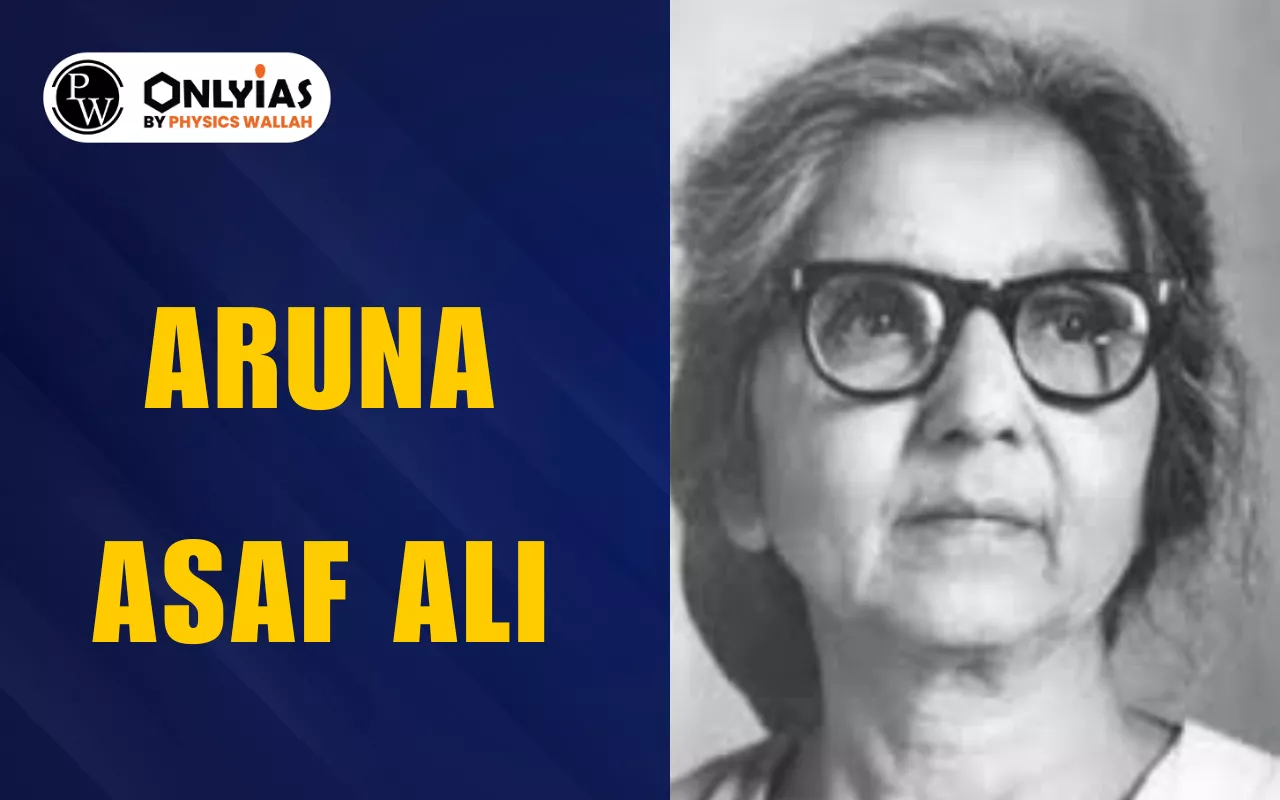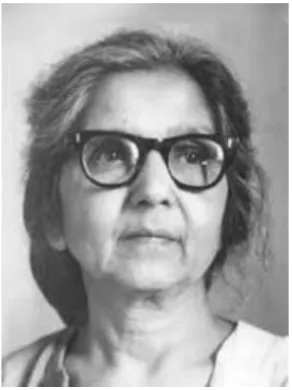Aruna Asaf Ali was a fearless freedom fighter who led the Quit India Movement by hoisting the Indian flag in 1942. Aruna Asaf Ali became the first woman Mayor of Delhi, promoted women’s rights, supported socialism, and was honoured with the Bharat Ratna for her lifelong service to India.

Aruna Asaf Ali, who was one of India’s most fearless freedom fighters. Her courage and leadership during the freedom struggle made her a respected national figure. She believed in equality, justice, and women’s empowerment. This Aruna Asaf Ali Biography tells the story of a woman who became a symbol of strength and patriotism in India.
Aruna Asaf Ali was a freedom fighter who had played a major role in the Quit India Movement of 1942. She inspired thousands with her brave act of hoisting the Indian flag at the Gowalia Tank Maidan in Bombay. This moment marked her as a true hero of India’s struggle for freedom.
Who was Aruna Asaf Ali is not just a question of history but a story of courage and determination. She broke social barriers, stood up against injustice, and became an icon for young Indians who dream of a free and fair society.

Aruna Asaf Ali Biography begins on 16 July 1909, when she was born in Kalka, Haryana, into a Bengali Brahmin family. She studied at Sacred Heart Convent in Lahore, where she developed an interest in teaching and social work. Later, she worked as a teacher at Gokhale Memorial School in Calcutta.
Her life changed when she married Asaf Ali, a Muslim lawyer and freedom fighter, in 1928. Their marriage was considered bold at that time because it crossed religious boundaries. This decision showed Aruna’s independent thinking and belief in equality.
The early part of the Aruna Asaf Ali Biography reflects how education and courage shaped her into a strong voice for justice and change.
Aruna Asaf Ali Political Career began when she joined the Indian National Congress during the Civil Disobedience Movement in 1930. She took part in protests and was even arrested for hoisting the Congress flag in 1932. Her time in jail strengthened her will to fight against British rule.
Her most famous moment came during the Quit India Movement in 1942. When senior leaders were arrested, Aruna Asaf Ali hoisted the Indian National Flag at Gowalia Tank Maidan in Bombay. This act gave new energy to the people of India and made her a national hero.
Throughout the Aruna Asaf Ali Political Career, she remained active in underground movements. She spread messages through secret radios and pamphlets, helping to organize protests and keep the spirit of freedom alive.
Aruna Asaf Ali Contribution to the Freedom Movement is not limited to one single act. She played many roles that strengthened India’s fight for independence. Her courage and leadership inspired both men and women to take part in the national struggle.
| Aruna Asaf Ali Contribution to the Freedom Movement | ||
| Period/Movement | Contribution by Aruna Asaf Ali | Impact |
| Civil Disobedience Movement (1930–1932) | Took part in protests against British laws and supported the release of imprisoned Congress leaders. | Became known for her bravery and commitment to India’s freedom. |
| Quit India Movement (1942) | Hoisted the Indian National Flag at Gowalia Tank Maidan in Bombay when senior leaders were arrested. | Her act became a symbol of courage and started mass protests across the country. |
| Underground Resistance Work | Operated secret radio broadcasts, distributed pamphlets, and guided other revolutionaries. | Helped keep the spirit of freedom alive when open protests were banned. |
| Youth and Women Mobilization | Encouraged young Indians and women to take part in national activities. | Inspired a new generation to join the freedom movement and stand against injustice. |
After India gained independence, Aruna Asaf Ali Role in Post-Independence India continued to reflect her strong will and social commitment. She became the first woman Mayor of Delhi in 1958. In this role, she worked for public health, city development, and education.
Later, she became involved in socialist movements that aimed to create equality in society. She supported land reforms, labor rights, and women’s welfare. The Aruna Asaf Ali Role in Post-Independence India also included contributions to journalism. She co-founded the newspapers Link and Patriot to promote honest political discussion.
Aruna Asaf Ali Philosophy was based on equality, freedom, and justice. In her early life, she followed Gandhiji’s ideas of truth and non-violence. But during the Quit India Movement, her approach became more action-oriented. She believed that sometimes strong actions were needed to achieve change.
After independence, Aruna Asaf Ali Philosophy leaned toward socialism. She worked to improve the lives of workers and women. She also helped found the National Federation of Indian Women (NFIW) in 1954, which became an important organization for women’s rights in India.
Aruna Asaf Ali received several national and international honors for her lifelong service to India and humanity. These awards reflect her deep commitment to freedom, peace, and equality.
| Aruna Asaf Ali Awards and Achievements | ||
| Award / Honour | Year | Reason / Contribution |
| Bharat Ratna (Posthumous) | 1997 | India’s highest civilian award, given for her lifelong dedication to the nation and her fearless role in the freedom movement. |
| Padma Vibhushan | 1992 | Honored for her outstanding contribution to public affairs and social service. |
| Jawaharlal Nehru Award for International Understanding | 1991 | Awarded for her work in promoting peace, friendship, and understanding among nations. |
| International Lenin Peace Prize | 1964 | Recognized globally for her contribution to peace and human solidarity. |
Check Out UPSC CSE Books
Visit PW Store
Aruna Asaf Ali believed that women should have equal rights and opportunities. At a time when women were not active in public life, she stood out as a leader. She encouraged women to study, work, and participate in politics.
Through her work with the National Federation of Indian Women, she supported causes like equal pay, education for girls, and social justice. Her story continues to inspire women across India to take leadership roles and speak up for their rights.
Aruna Asaf Ali Philosophy death marks the end of a powerful life but not the end of her influence. She passed away on 29 July 1996 in New Delhi. Her contributions are remembered through roads, institutions, and awards named after her, such as Aruna Asaf Ali Marg in Delhi.
Even after Aruna Asaf Ali Philosophy death, her ideas continue to guide social and political movements. Her courage, leadership, and values still inspire India’s youth to work for justice and equality.
Ready to boost your UPSC 2026 preparation? Join PW’s UPSC online courses today!
Aruna Asaf Ali was an Indian freedom fighter. She played an active role in India’s struggle for independence and became a symbol of courage during the Quit India Movement.
She was born on 16 July 1909 in Kalka, Haryana.
She hoisted the Indian National Flag at Gowalia Tank Maidan in Bombay in 1942, when most senior leaders were arrested.
After independence, she worked for social causes and became the first woman Mayor of Delhi in 1958.
She received several awards, including the Bharat Ratna, Padma Vibhushan, Jawaharlal Nehru Award, and the Lenin Peace Prize.
<div class="new-fform">
</div>
